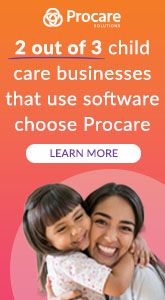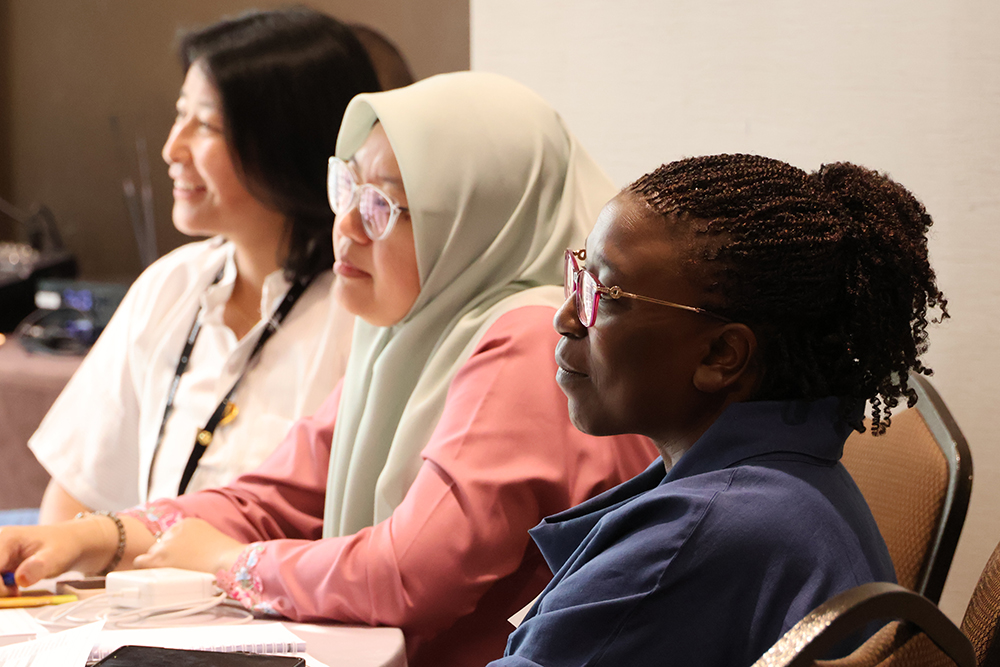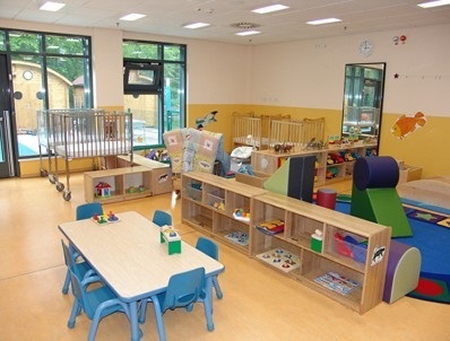What we have endured over the past few weeks, and what we will continue to endure over the next few months, or year, will connect all of us for a lifetime. In this unprecedented time in our country, there is no playbook, and no one to call to ask for advice, except each other. We are leaders in the field of early childhood education and have been tasked with the daunting challenge of keeping our young learners safe, our staff safe, our families safe, and ourselves safe from this treacherous virus. I am sure if you are like me, you haven’t had much sleep as you’re trying to juggle everything that has come your way. Know you are not alone. Here at my small school outside Boston, the world seemed quiet and very normal in the days leading up to our school closing. We knew something would happen, but we didn’t know what or when. We worked hard to enforce more handwashing, closed off toothbrushing, and were vigilant to notice if any child had a fever or cough. Then we got the call to close. My staff sprang into action, preparing baskets of materials to deliver to students’ houses. We filmed videos explaining to parents how to set up learning environments at home. We quickly rolled out Facebook groups, which were to become our virtual preschool. Fast forward as we begin our third week out of school, I am in awe of my program’s families and my staff. We were anxious to send out our program’s invoices. We were worried there would be complaints or families that couldn’t pay. We were met with love, understanding, and generosity. Is this ideal learning? No. Will we lose funds this year? Yes. Will my teachers get paid? Yes. Are we providing our students the best we can with our current circumstance? Yes. Through all of this, what I have witnessed is a re-assessment of our society’s values. I have seen families spending more time together at meals, playing and learning together. I have seen fallout, tears, and hysteria, and I have seen neighbors helping neighbors. One could hope at the end of this, maybe our country will realize the importance of early education and the people that serve and care for the young. I will not deny that this is terrible; people will suffer; and we will most likely experience deep loss. But I continually remind myself to look for connections, reconnections, and rebirths in relationships, not only with loved ones but also with strangers. There is, as one philosopher said, irony in tragedy. While this tragic situation may keep us from shaking hands, in some ways, it’s bringing us closer together. —Iris Chin Ponte ADVERTISEMENT As a kid I got a lot of song lyrics wrong. There was a bathroom on the right (bad moon on the rise), a hose with no legs (horse with no name) and like a twister (drifter) I was born to walk alone. But here is the thing I learned from getting it wrong early, but trying: 1) I always care where the bathroom is more than the moon; 2) My whole family can get behind me because 30+ years later they still sing “horse with no legs,” and; 3) None of us were born to walk alone whether we are twisters or drifters. So, connect, connect, connect, connect! Finally, you don’t always have to be right to be exactly what someone needs to hear. Just keep trying! —Jamie Bonczyk, with Roz Zuest While I too am feeling confused, I ask myself, “Who do I want to be through this?” I am told to look for the helpers. I want to be a helper… let’s face it, what would the alternative look like? But how can I help others when it seems I can’t even help myself? I go back to what I know are the most basic skills. First, I listen to what my body is telling me. Do I need to reset with some music (Bob Seger or Billy Joel) or some watercolor painting or maybe a brisk walk listening to what nature has to say? Then, I listen to what others are saying both verbally and through non-verbal cues. Is my son showing signs of stress, does my husband’s voice sound tense? If so, how can I be a helper to them? I listen to reliable sources to stay informed. I listen to those I’ve come to trust, my mentors and other wise elders. Along with all that listening, another basic skill is to communicate. Communication comes in many forms—a smile, a thumbs up, a word, a sigh. A painting or a photograph. A laugh. A tear. We can communicate through stories and music. By asking questions, or just sitting still. And so I communicate with my authentic self. My caring, empathic self; after all, that is who I want to be! That is how I can be a helper. I have found there is no point in diminishing the fear others are feeling, as I am feeling it too. But right alongside the fear is hope. I am a glass-half-full person, so I call that positivity forward. Which brings me to a third, and surprising skill: celebrate. I remind myself of Dewitt Jones’ adage that if we celebrate what’s right, we find the energy to fix what’s wrong. Also, I look for the helpers and celebrate their helpfulness. Big helpers like nurses and childcare workers, and small helpers like the person who graciously waited outside while I wrapped things up with my tax preparer—maintaining appropriate distance. I smile at the young couple taking their dog for a walk. I laugh out loud as I listen to the neighbor boy entertaining his much younger sister. And I find the energy to help. —Angel Stoddard As the principal of the pre-primary section of our school, Saraswati Mandir Trust’s English Medium School, which is in Thane, a suburb near Mumbai, Maharashtra India, this is what I have given my staff members as home assignment during this crucial lockdown period of COVID-19. At the outset, relax and don’t fear about the global situation that has arrived. Look after your family, children and the senior members in the family. First take good care of yourself. Discover what things you can do now at home, which you could not do otherwise. Cook tasty recipes, relish them with your dear ones and also share them with your friends on social media. I have also given my staff two assignments to work on from home. 1. We have 18 teachers in our PP section. I selected nine educationists from India and places abroad who have contributed immensely to the field of ECE, and made chits of their names. I told the teachers to pick one chit; in this way, two teachers got one educationist. I asked them to study this educationist individually in very comprehensive way, giving them certain guiding points as to how this research study should proceed. This research journal should be submitted as a hard copy and in addition, each of them will give a PowerPoint presentation to their colleagues. 2. I want the teachers to do away with age-old children’s stories that have been told since our grandmothers’ times. The world has changed, time has changed. Each teacher will write 10 stories, one story every day for the preschool-aged children. Once completed, I gave them 10 pictures depicting human relations, community life, folk life, friendship, nature, exploration, etc. Keeping the picture as a guide for the theme, they will construct a story one every day, of their own for a common age group up to 10 years. Both these assignments they will send me every evening, and I will correct, give suggestions and guidance. Once we have these 360 new stories, we shall publish a story book with all these new authors. This has boosted their morale immensely and they all are sincerely doing it. I hope this project of mine serves as some interesting guidance to others. Stay at home, stay safe, eat healthy, think positive. —Vishakha Deshpande I work as an education specialist for Child-Parent Centers, the Head Start grantee in Tucson and Southern Arizona. My job is to support teachers providing learning at home to children who are eligible for Head Start. Many of the home-schooling tips and websites are for families with access to computers, learning materials, and other resources are not appropriate for Head Start families. Our families have barely the essentials in their homes and little extra. I feel fortunate that Head Start has adapted and continues to adapt to support its staff and families. We are providing sustenance for living through food boxes and community contacts, and sustenance for learning with ideas for engagements that can be done at home with resources in the house. For example, everything can be counted. Clothes, shoes, silverware can be sorted. Letters can be written with pictures drawn and sent to grandparents, and stories can be told and read. Spring has arrived in the Sonoran Desert and there are blossoms to count, birds to watch, and it’s warm enough for water play. We send books home in weekly food boxes. Constant contact with families sustains our children, families, and teachers. The assessment giants like Teaching Strategies Gold and Teachstone/CLASS have posted ideas for learning at home for parents for children birth to five. Teachstone has posted guidance for virtually coaching teachers. We have created our own resources, too. Our two state NAEYC affiliates are rapidly posting information for early childhood education providers. Our college of education also posts helpful information. The care for body, heart, and mind continues. —Diana Hill In this time of coronavirus, I want to acknowledge the root of your question as you ask about flourishing and surviving. You are right. There are so many changes and directives, even changes in directives! I feel your concern for your staff and families. So, you are wise to wonder about flourishing. My first thought goes to what you have held as your “gold standards” throughout your work as a director and your life as a leader. What values have you always held highest? Take a moment and write these out. These are the same values that will guide you to survive and flourish now and, in the days ahead. I have been drawn to the phrase “our better days ahead,” (first heard in a Toyota commercial!) as a way to imagine a time when we come through this fear, scarcity and dread. Our better days, the best in each other, the best in this moment—this kind of abundance thinking helps us right now. There is a virtual (pun intended) avalanche of information available to us at every turn. I like to imagine that the internet will keep it all available, and I only need to access what is in-line with my values, in order to survive and truly thrive while I continue to serve those in my life. One resource, Taking Care of Yourself (https://www.nctsn.org/print/2038) lists strategies to care for yourself as you care for others. It can be easily printed and provides an ongoing resource for you, your staff and families, now and for the future. Of the two dozen strategies on the page, “put stress away” is my favorite strategy for these times. It reminds me that I have control over my thoughts, I can access my own strength, and I deserve self-care. I would suggest finding a small box, decorated or not. Place it within your view. It will be a reminder to take a break—even the simple, brief space of a deep, cleansing breath. Choose a mental image of one who sees the best in you or a place in nature, or give yourself the care that you give to others when you tuck stress into that box for a time. To thrive, we need to repair our bodily systems and our psyche. Writing (another suggestion from “Taking Care of Yourself”) has long been a release for me. In late March I wrote a poem titled, “Clear a Corner” (see page 67). As you explore new strategies and return to your favorite ways to take care of yourself, you’ll realize, “Self-care is never a selfish act—it is simply good stewardship of the only gift I have, the gift I was put on earth to offer others. Any time we can listen to our true self and give the care it requires, we do it not only for ourselves, but for the many others whose lives we touch.” (Parker Palmer, “Let Your Life Speak: Listening for the Voice of Vocation.”) —Mary Peters Thank you for reaching out. Connecting with one another during these times is of the utmost importance. As you mentioned, our work as directors has certainly changed rather rapidly. To make matters more confusing, we are receiving mixed messages from the state, community care licensing, the federal government, as well as from families and staff. I will start by saying that there is no right answer to your question, nor is there a right response in each of our situations. We must all take stock of our school sites, communities, safety precautions and the resources we have at hand. First on all of our minds is our safety. As directors we are no longer just thinking about children’s safety and health; we have to think about safety and health beyond ourselves and our school sites. Each director is being called upon to make the best decisions they can with the facts at hand. We are supporting families in new and different ways as they are home with their children and trying to navigate work, unemployment, health and safety as well as acquiring supplies to follow the shelter in place orders. Our staff members and educators are concerned for their health and welfare, as well as for that of their own families. Our business and financial situations are more precarious than ever, and we ourselves need support in making enormous decisions for the present and the future. So what are we to do as early childhood leaders? How do we find counsel and support all those looking to us for answers and guidance? I think there may be various answers and ways of moving forward; we need to support all decisions and remove judgment as others make decisions that differ from ours. We have been left without guidance and support and everyone is doing the best they can. I will offer a framework that may be of use to each of us in our unique situations. My suggestion is to return to the framework of care and respect that is at the core of our early childhood educational practices. Using care and respect creates a reference point that can help us as we investigate, question, and co-create new pathways. Children benefit from the routines provided at school, to be sure, because school sites can provide many children the social emotional growth and development they need. The realities of our world are also that families need care for their children while they work to earn money to make ends meet. Teachers need the pay their jobs provide for the same reasons. And the central issue is that we all need to find ways to stay healthy and adapt to the new pressures COVID-19 has created. Is one group more important than another? No, not really. Yet decisions need to be made. How can we use the ideas of care and respect to support us here? Care and respect can help us in times of stress, as a reference when we need to make big decisions. We need to respond and not react and we need to listen compassionately to what is being said and what is needed. Honor your expertise and take the time for reflection and connecting with that care you provide as an early childhood educator. Based on that, advocate for your center, for ECE, for children, families and educators. Knowing why you made your decision will help you provide supportive answers to all who need them. Grow yourself most deliberately in the areas you are feeling most vulnerable and lacking in knowledge. We are all moving in spaces unknown. Can we flourish in these times or just survive? I honestly think we can do both, but only if we make sure to know why we are in this field and refer to these reasons in times of stress and uncertainty. Keep connecting with fellow early childhood educators and leaders, as we need to support one another more than ever. —Martha MelgozaDear Confused,
Dear Confused and Chaotic,
Dearest Confused,
Dear Confused,
Dear Confused and Chaotic,
Dear One,
Dear Confused,
Exchange Press is committed to supporting early childhood professionals worldwide in their efforts to craft early childhood environments where adults and children thrive - environments that foster friendship, curiosity, self-esteem, joy, and respect; where the talents of all are fully challenged and justly rewarded.
Related
ADVERTISEMENT











